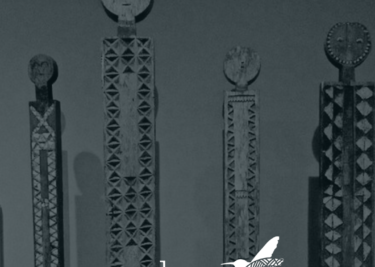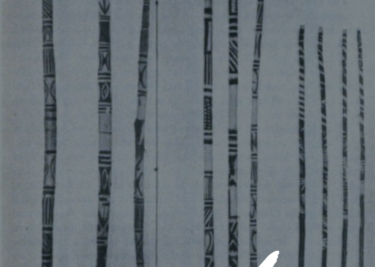Akamba Birth Rituals

For the Akamba people, rituals around birth would begin when a baby was still growing steadily in the womb. With medicine men and women playing a substantial role in the Kamba community, they were tasked with ensuring the safe delivery of a child. These trusted community members would craft gourds called kwausia that remained tied around their bags with ropes. In them, they would prepare herbs for anytime a woman reported abdominal irritation. These cleansing herbs or miti would be administered to the pregnant woman and were said to protect the baby as it made its way to the world.
This was not the only contingency plan in place in case of any difficulties in the birthing process. The Akamba also keenly observed to identify when women were struggling in labour. Medicine men and women would wave a bush-buck horn over a labouring woman once and stir a calabash of water five times with it. It was believed that a woman who was close to death’s door and yet to give birth would have her baby immediately after drinking the water.
Great celebration would ensue once a child was born. For the first three days of life, the child was considered to still belong to the spirits or kiimu. If a child died during this period, the mother would need to be cleansed. Three days after birth, the parents would slaughter a bull or goat. On this day, the community would also be free to delight and feast with the parents in recognition of the new child. It was during these gatherings that women who had children would commune to name the child. This name was called “isyitwa ya Ngima” in reference to ngima – ugali that was typically served on this naming day.
Akamba names would typically mark either the state of affairs at the time or commemorate a family member that had passed. Children could be named after seasons such as Munyao for a boy born in drought or Wayua for a girl born during a famine. If parents could not find anything significant to name a child after, they would opt for a name like Koki or Kaluki for a girl. This stemmed from uki – the beer served during the naming ceremony. A boy would be called Maingi after mbingi – the childbirth beer.
On the fourth day after birth, the child was considered officially separated from the spirit world. To mark this occasion, the father would adorn the child with an iron necklace. Upon wearing this, the child would be considered a full human being. They would then become a child of the community. After all, the Akamba believed in the saying “rnwana notuula xvaku” which means, any child is just as your own.
Do these birth rituals sound familiar to you? Do you know of any other traditional birthing or naming rituals? Let us know in the comments!




1 Comment
A good publication I’ve loved it.💝🙏
I believe The last Kamba saying you intented to say “ûmwana no ta ûla Waku”. From the translation you’ve given.
Thanks 👍.